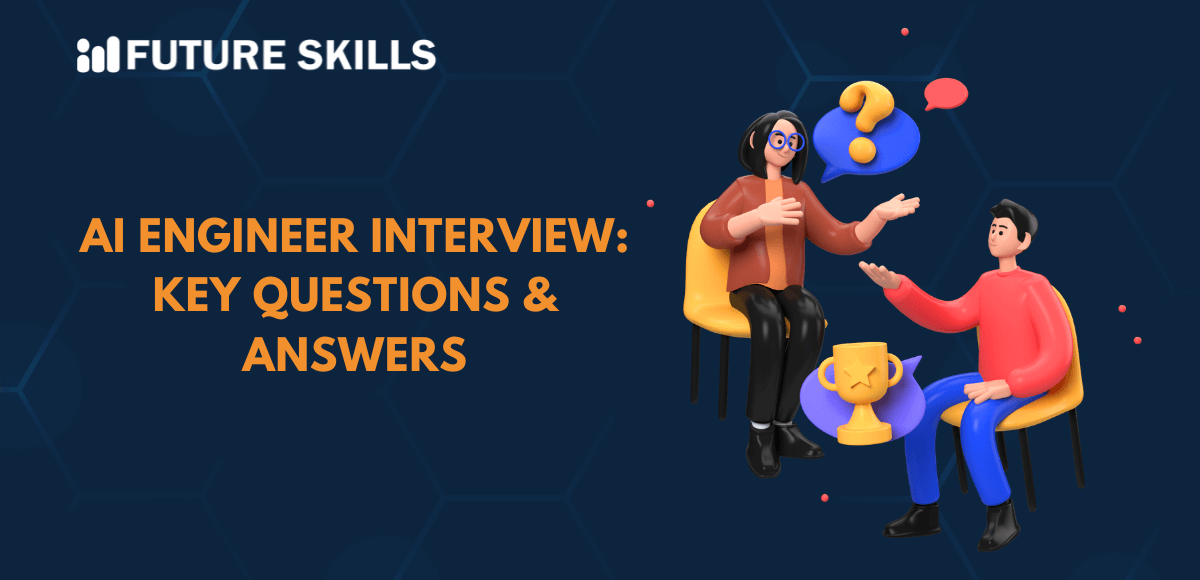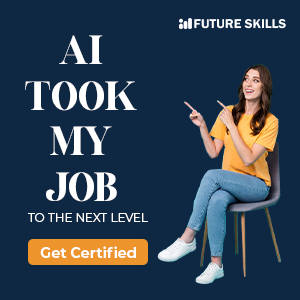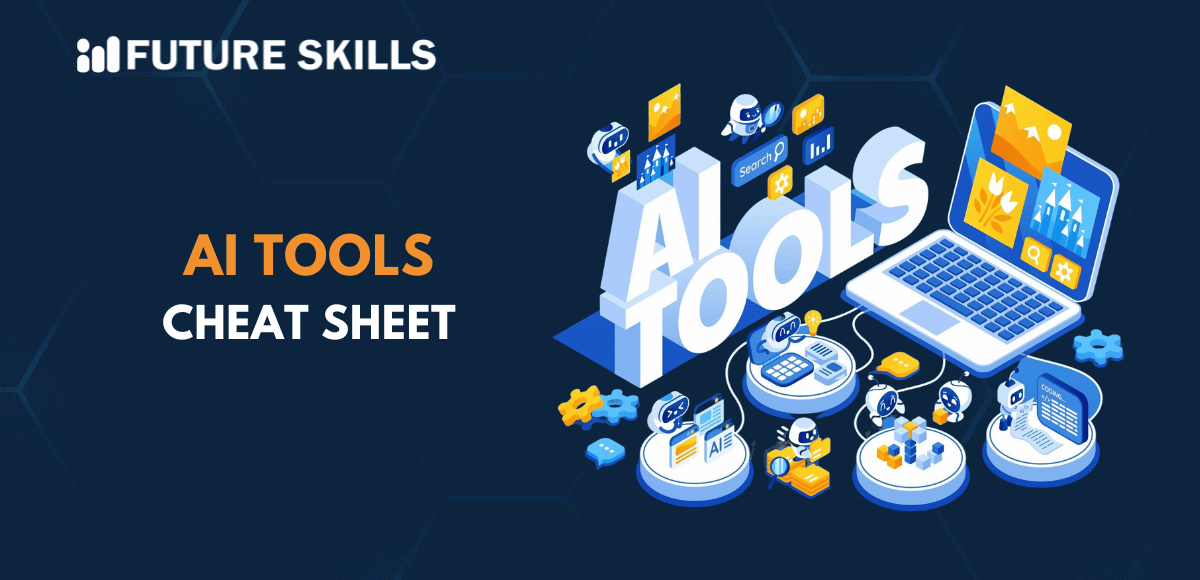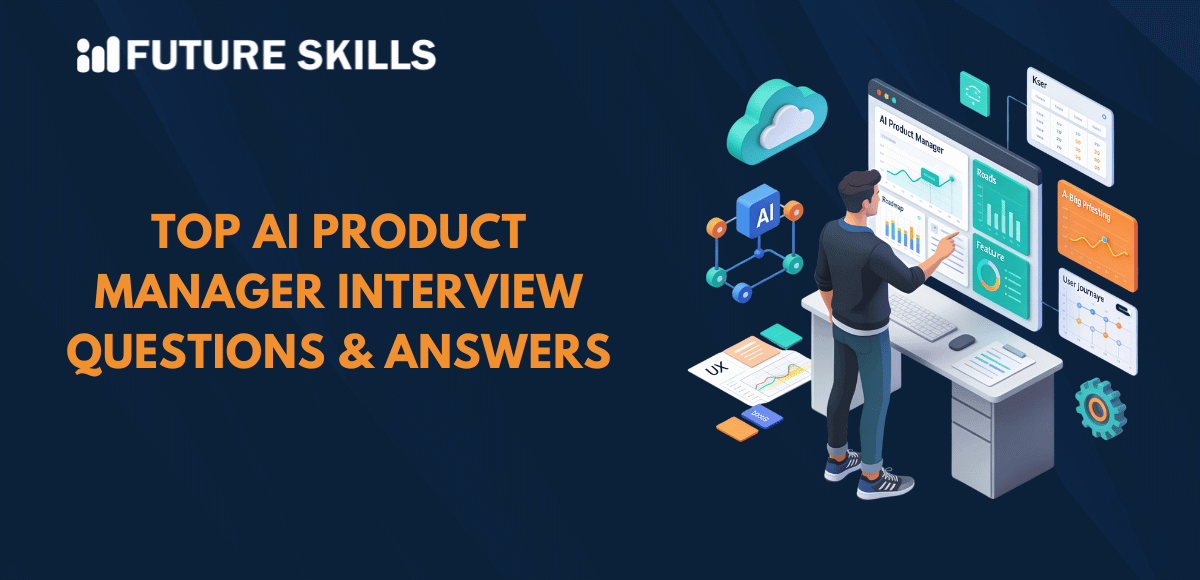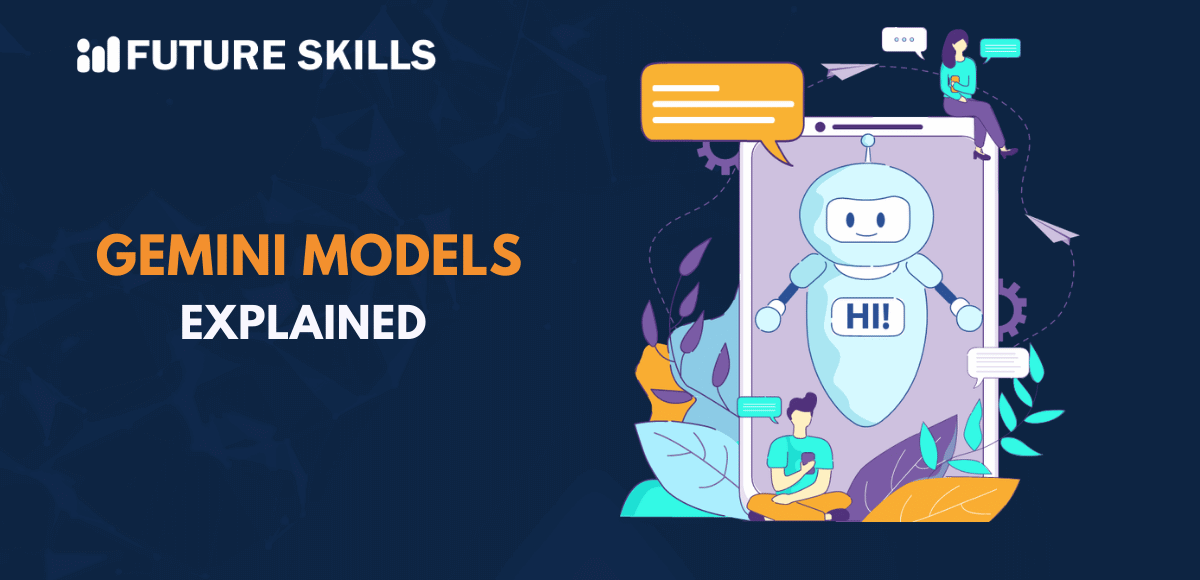The AI labor market has been growing and evolving consistently with the introduction of new job roles. One of the most prominent roles in AI that has caught the attention of companies worldwide is that of an AI engineer. Candidates have been seeking answers to questions like ‘How to prepare for an AI engineer interview?’ without access to helpful resources. You can overcome such obstacles by learning the most important interview questions for AI engineers along with their answers. Let us find the most important questions that you will find in interviews for AI engineer jobs to prepare for your dream job.
Discover the meaning of AI and become an AI professional with our most trusted Certified AI Professional (CAIP)™ Program.
Popular Interview Questions and Answers for AI Engineers
AI engineers are responsible for creating and implementing advanced models with the capability to showcase intelligent behavior. The work of AI engineers revolves around transforming complex data science models to create efficient and scalable AI systems tailored for real-world applications. You will find different types of AI interview questions and answers in interviews for the role of AI engineers. The following categories of questions and answers can help you prepare for different stages of interviews for AI engineer jobs.
Common Interview Questions and Answers for AI Engineers
Interviewers will test your knowledge of AI fundamentals and essential concepts required for AI engineers in initial stages of the interview. You can use the common interview questions as the ideal opportunity to showcase your AI expertise. Every aspiring AI engineer must learn the following questions and their answers to achieve success in interviews.
1. Do you know any examples of how AI has influenced certain sectors?
The focus of top AI engineer interview questions will be on testing your practical knowledge. Artificial intelligence has had a transformative impact on different sectors such as healthcare, finance, and the automotive industry. One of the notable examples of the impact of AI on a specific sector draws attention towards the retail industry. AI enables personalized shopping experiences with the help of data analytics and streamlines supply chain operations through predictive modeling.
2. What is the difference between narrow AI and general AI?
General AI is the variant of AI that can understand and perform tasks with the cognitive abilities of a human. On the other hand, narrow AI has been tailored to perform specific tasks within a limited context. General AI is different from narrow AI or weak AI as it can simulate human intelligence and learns like humans to apply intelligent in completely new situations. It is also important to note that general AI is still a concept on paper while you can find multiple applications and examples of narrow AI in the real world.
3. How is machine learning different from deep learning?
You cannot expect a list of AI engineer interview questions without references to the difference between machine learning and deep learning. Machine learning is a crucial discipline in the domain of artificial intelligence that offers simple to complex algorithms for managing a wide range of tasks. Machine learning algorithms are useful for drawing dynamic predictions or in basic classification tasks. On the other side, deep learning itself is a subdomain of machine learning. The distinctive highlight of deep learning is the use of layered neural networks to determine relationships between different aspects of complex data.
4. What is the impact of a loss function on training ML models?
Loss function is one of the critical components in the training of machine learning models. It helps in quantifying the difference between actual values in the dataset and values predicted by the model. The loss function helps in measuring the performance of a machine learning model. Selection of the loss function has a significant impact on the training process of machine learning models and its performance. The importance of loss function in training ML models revolves around optimization of the algorithm to adjust model parameters and reduce prediction errors.
5. Can you explain the impact of bias-variance tradeoff on ML models?
The best AI engineer interview questions in the initial stages will also test your knowledge of concepts like the bias-variance tradeoff. The bias-variance tradeoff is a critical element for enhancing model accuracy. Higher bias in a model would lead it to miss the most relevant relations between target outputs and features. High variance implies that the model would align too closely with the training data along with the errors and noise. The ideal balance between bias and variance can help in reducing the total error.
6. What do you know about the applications of generative AI in different industries?
Generative AI has created revolution that has sped up the adoption of artificial intelligence. As the name implies, generative AI can generate new data from existing training datasets. The applications of generative AI in different industries focus on content creation and personalization. You can use generative AI to generate personalized content for marketing strategies and create new music compositions for the entertainment industry.
7. How can you work with feature engineering?
Feature engineering is one of the most important steps that can help you create effective machine learning models. The working of feature engineering focuses on selection, extraction and transformation of data features to achieve better model performance. You can use techniques like recursive feature elimination for feature selection along with algorithms for regularization. The feature extraction process will require methods like Principal Component Analysis for eliminating collinearity and reducing dimensionality. For transformation, you can rely on techniques such as normalization and scaling.
8. Do you know how to reduce overfitting in ML models?
Your search for answers to queries like ‘How to prepare for an AI engineer interview?’ will also lead you to topics like overfitting. The ideal approaches to resolve concerns of overfitting in machine learning models include cross-validation, data augmentation and regularization techniques. Cross-validation techniques such as k-fold can help in maintaining consistency of model performance across different subsets of training data. Data augmentation is useful in computer vision projects where you can implement transformations such as rotation, flipping and scaling. You can also rely on L1 and L2 regularization techniques to prevent overfitting in machine learning models.
Understand why ethics in AI is essential and enhance your AI expertise with our Ethics of Artificial Intelligence (AI) Course. Enroll now!
Technical Interview Questions and Answers for AI Engineers
Candidates preparing for AI engineer jobs must recognize the importance of technical interview questions in testing their expertise. You must learn the following important questions and answers to prove your technical fluency as AI engineers.
1. What is a gradient-boosting algorithm?
Gradient boosting is an important ensemble technique for reducing variance and bias. It helps in sequential development of machine learning models with new models rectifying the errors made in the previous models. Gradient boosting algorithms can offer stronger predictive performance than single models on complex datasets and ensures better accuracy.
2. Do you know the process to implement hyperparameter tuning?
Hyperparameter tuning is also an important concept that you may find in AI interview questions and answers for AI engineers. The process focuses on choosing the ideal set of hyperparameters to serve performance improvements in machine learning models. Hyperparameter tuning involves definition of hyperparameters, selection of search strategy, performance evaluation and selection of the best set of hyperparameters.
3. How can you use SVMs in non-linear classification problems?
You can use support vector machines or SVMs to manage non-linear data with the kernel trick. The kernel function helps SVMs in operating in a high-dimensional feature space. The data points in the high-dimensional feature space are linearly separable that allows the algorithm to discover a hyperplane for data categorization.
4. What is the difference between parametric and non-parametric models?
Parametric models work with an assumption of predetermined form of relationship between input and outputs. You can find a simpler learning process in parametric models albeit with limited flexibility. On the other hand, non-parametric models can adapt to different types of data patterns albeit with the requirement for more data to draw accurate predictions.
5. How can you design AI systems to enhance the quality of customer support?
The top AI engineer interview questions will also focus on practical examples of designing AI systems. You can approach such questions by implementing chatbots with NLP to understand customer queries. The training process for the system will involve a dataset featuring customer service interactions to learn different customer requests and relevant responses. You can also integrate sentiment analysis for reporting complex and sensitive issues to agents.
6. Do you know how to improve the transparency of an AI model?
AI engineers can make enhance the transparency of machine learning models by using different techniques such as comprehensive documentation of the model development process. The documentation focuses on detailed description of data sources and data preprocessing steps. In addition, the documentation must explain the selection of algorithms with references to their strengths and setbacks.
Enroll in our ChatGPT Certification Course which will expand your ChatGPT skills and help you boost your productivity and innovation.
Final Thoughts
The list of questions and answers that you can find in an interview for AI engineer jobs will help you prepare for success. You can rely on the interview questions to enhance your confidence and knowledge of important AI concepts. The answers to AI engineer interview questions also help you figure out the ideal way to showcase your knowledge before interviewers. Find the most useful resources to hone your AI skills and prepare for AI engineer jobs right now.

